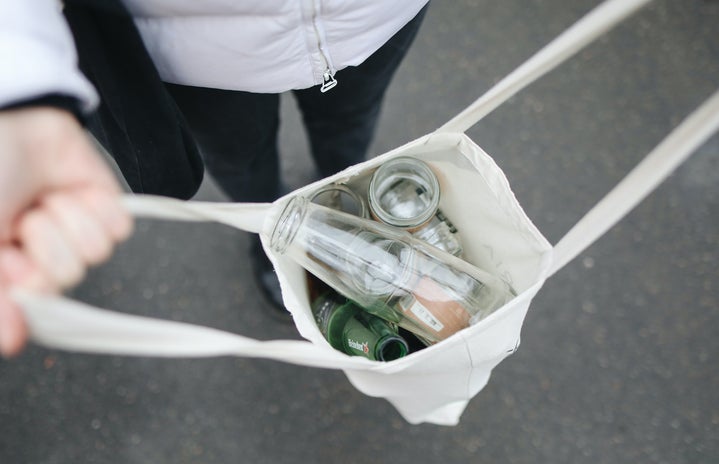We New School students are extremely blessed to attend a university that is so forward-thinking when it comes to social, political, and sustainability matters. Our students and faculty are actively engaged in conversations and movements that affect each and every one of us, no matter how uncomfortable or challenging those conversations may be.
When looking at the amount of progress and optimism that surrounds us everyday, it’s easy to overlook the very system that we are a part of in order to make it that much better. As a Parsons/New School student, however, every freshman is required to take a course called “Sustainable Systems” in order to develop meaningful creative work informed by pressing issues of sustainability that inspires us.
For my personal investigation, I chose to look into how TNS Dining Services is working to achieve their sustainable goals that help every member of our community. The most fascinating part of my investigation was how much I did not know about dining, which is why I chose to share portions of my meeting with Jessica Roberts, Director of Sustainability and Campus Operations.
1. Sustainability Is In Your Hands
One of the most fascinating things that Jessica had to share with me was the amount of work done that is directly based off of student feedback. For instance, last year Dining Services received several comments from students stating that they were using plastic forks and knives because the metal cutlery was too heavy and uncomfortable. As a result, TNS Dining purchased new silverware and have since seen a drop in use of plastic utensil use. If this has inspired you to share your own thoughts, be sure to submit a comment to TNS Dining here. 2. Details Matter and are Accounted For
You know those flat, ceramic plates provided by the cafeteria? Well, those plates were purchased for a reason. While they may feel a bit uncomfortable to carry, the reason they’re there is to discourage unnecessary food consumption that would otherwise end up in the garbage. According to Jessica, when students use heavier plates, they’re less likely to fill them, which improves the entire campus sustainability initiative by being more conscious of the amounts they are purchasing.
3. Incentives Are The Priority
I wanted to add this point as a reminder that TNS is working for your benefit, not against it. The sustainability team has investigated how other universities work toward green-friendly solutions, and what they decided was that rewarding students was far more productive than punishing them. For example, TNS actually gives you a $0.25 discount when you purchase food using a ceramic plate opposed to a paper plate. The entire point of this kind of reward is to motivate you to make sustainability a priority in every aspect of your life by starting with a positive association at the place where you spend most of your time.
The aforementioned points are merely a summary of the plethora of information I gained from speaking with Jessica. After leaving her office, I proceeded to ask other TNS students how much they knew about dining, and wasn’t surprised to find that they too did not know much. One Kerrey Hall resident noted that while she did notice the discomfort of the ceramic plates, it was actually the food quality and variety that she focused on when purchasing at the cafeteria. Another Loeb Hall resident noted that because the cafeteria is always so crowded, she doesn’t want to add the burden of a heavy plate to her purchasing experience. How students feel in the cafeteria is essential to its sustainable goals, which is why I found these opinions so insightful.


